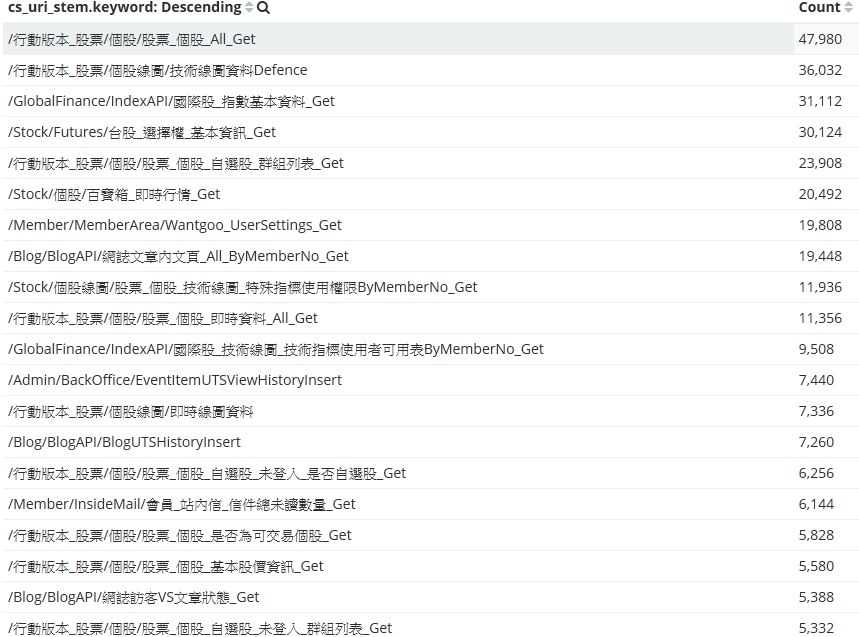ELK-IIS
For ELK and IIS
Here is result
And you can use kibana visualize to count.
This is my IIS log sample.
Especially, you need pay attention to the line 4 (Fields).
#Software: Microsoft Internet Information Services 8.5
#Version: 1.0
#Date: 2016-12-13 20:00:00
#Fields: date time cs-method cs-uri-stem cs-uri-query c-ip sc-bytes cs-bytes time-taken
2016-12-13 20:00:00 GET /js/facebook/FacebookPixelCode.js - 61.228.217.134 716 1008 31
2016-12-13 20:00:00 GET /js/facebook/LinksGetStats.js - 61.228.217.134 550 1004 31
2016-12-13 20:00:00 GET /css/blog/alertify.css versionParams=2016-1212-003 61.228.217.134 4207 1040 31
2016-12-13 20:00:00 GET /css/widget/alertify.css - 112.118.199.37 92 1304 46
2016-12-13 20:00:00 GET /DynamicFiles/DoDataSourceTxt/useDataJs.js v=5951 61.228.217.134 2036 1024 31
2016-12-13 20:00:00 GET /DynamicFiles/DoDataSourceTxt/useDataJs2.js v=5951 61.228.217.134 363 1025 46
Below is my nxlog config for iis
<Input iis_1>
Module im_file
File "F:\IIS_Log\Default\W3SVC3\u_ex*.log"
ReadFromLast True
SavePos True
Exec if $raw_event =~ /^#/ drop();
</Input>
And logstash config
input {
tcp {
port => 9527
type => "iis"
}
}
filter {
grok {
match => ["message", "%{TIMESTAMP_ISO8601:iis_time} %{WORD:cs_method} %{URIPATH:cs_uri_stem} %{NOTSPACE:cs_uri_query} %{IPORHOST:c_ip} %{NUMBER:sc_bytes} %{NUMBER:cs_bytes} %{NUMBER:time_taken}"]
}
date {
match => [ "iis_time", "YYYY-MM-dd HH:mm:ss" ]
target => "iis_time"
timezone => "Etc/UCT"
}
mutate {
convert => ["sc_bytes", "integer"]
convert => ["cs_bytes", "integer"]
convert => ["time_taken", "integer"]
}
geoip {
source => "c_ip"
}
}
output {
elasticsearch {
hosts => ["localhost:9200"]
}
}

